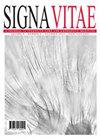褪黑素在COVID-19患者中的辅助治疗随机和倾向匹配研究的荟萃分析
IF 0.6
4区 医学
Q3 EMERGENCY MEDICINE
引用次数: 0
摘要
褪黑素是一种神经激素,以治疗睡眠障碍而闻名。最近的一些临床试验指出,使用褪黑激素治疗2019冠状病毒病(COVID-19, SARS-CoV-2)患者具有生物学上的合理性。褪黑素具有广泛的抗炎、抗病毒和抗氧化作用。我们的荟萃分析旨在探讨褪黑素对不同疾病严重程度的COVID-19患者死亡率的影响。我们检索了2023年2月更新的PubMed, EMBASE, Web of Science(无语言限制),以进行随机和倾向匹配研究,比较褪黑素加标准COVID-19治疗与单独标准COVID-19治疗。患者必须在确诊为SARS-CoV-2感染后住院。主要结局是最长随访时的死亡率。我们纳入了7项随机研究和1项倾向匹配研究,共纳入1155例患者,平均年龄为61±19.5岁。我们发现总体死亡率降低(127/575 (22%)vs. 209/580(36%))相对危险度:0.62(置信区间(CI): 0.40, 0.96), I2 = 86% p = 0.03,合并5项在非重症监护室患者中使用褪黑素的研究(26/423 (6.1%)vs. 69/419(16%)相对危险度0.30 (CI: 0.10, 0.86), I2 = 40% p = 0.02)时证实了这一结果。根据最近的随机和倾向匹配证据,褪黑素可能是COVID-19患者的救命辅助疗法。这种影响主要由非重症监护病房患者驱动。本文章由计算机程序翻译,如有差异,请以英文原文为准。
Melatonin as adjuvant treatment in COVID-19 patients. A meta-analysis of randomized and propensity matched studies
Melatonin is a neurohormone well-known as sleep disorder treatment. A few clinical trials have recently pointed out the biological plausibility of utilising melatonin in the treatment of coronavirus disease 2019 (COVID-19, SARS-CoV-2) patients. Melatonin wide range of activities include anti-inflammatory, antiviral and antioxidant effects. Our meta-analysis aimed to investigate the effect of melatonin on mortality in COVID-19 patients with different disease severity. We searched PubMed, EMBASE, Web of Science with no language restrictions updated on February 2023 for randomized and propensity matched studies, comparing melatonin plus standard COVID-19 therapy vs. standard COVID-19 therapy alone. Patients had to be hospitalised with a confirmed diagnosis of SARS-CoV-2 infection. Primary outcome was mortality at the longest follow-up available. We included 7 randomized and 1 propensity matched studies enrolling 1155 overall patients with a mean age of 61 ± 19.5 years. We found a reduced mortality rate in the overall population (127/575 (22%) vs. 209/580 (36%) Relative Risk: 0.62 (confidence interval (CI): 0.40, 0.96), I2 = 86% p = 0.03, with the results confirmed when pooling the 5 studies which administered melatonin in non-intensive-care-unit patients (26/423 (6.1%) vs. 69/419 (16%) Relative Risk 0.30 (CI: 0.10, 0.86), I2 = 40% p = 0.02). According to recent randomized and propensity matched evidence, melatonin might be a life-saving adjuvant therapy in COVID-19 patients. This effect was mainly driven by non-intensive care unit patients.
求助全文
通过发布文献求助,成功后即可免费获取论文全文。
去求助
来源期刊

Signa Vitae
医学-急救医学
CiteScore
1.30
自引率
9.10%
发文量
0
审稿时长
3 months
期刊介绍:
Signa Vitae is a completely open-access,peer-reviewed journal dedicate to deliver the leading edge research in anaesthesia, intensive care and emergency medicine to publics. The journal’s intention is to be practice-oriented, so we focus on the clinical practice and fundamental understanding of adult, pediatric and neonatal intensive care, as well as anesthesia and emergency medicine.
Although Signa Vitae is primarily a clinical journal, we welcome submissions of basic science papers if the authors can demonstrate their clinical relevance. The Signa Vitae journal encourages scientists and academicians all around the world to share their original writings in the form of original research, review, mini-review, systematic review, short communication, case report, letter to the editor, commentary, rapid report, news and views, as well as meeting report. Full texts of all published articles, can be downloaded for free from our web site.
 求助内容:
求助内容: 应助结果提醒方式:
应助结果提醒方式:


